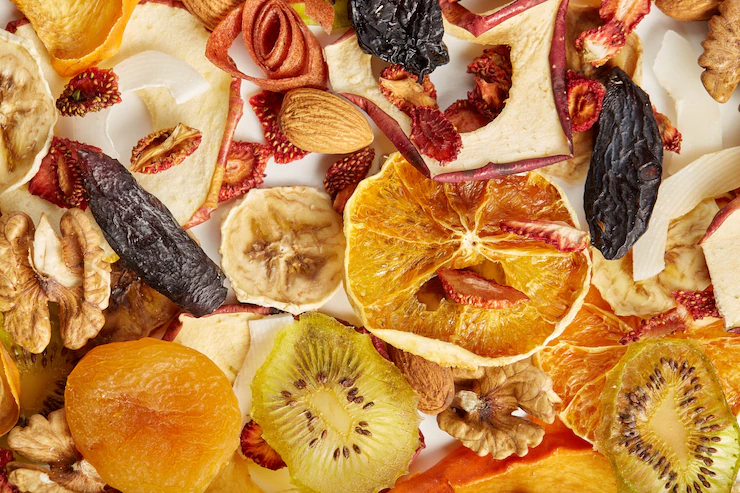The South African dried fruit industry is a significant agricultural sector in the country, with a rich history and global recognition. Here are some key things you should know about this industry:
- Historical Background:
South Africa has a long tradition of fruit farming, and dried fruit production has been a part of its agricultural heritage for centuries. The industry initially developed as a way to preserve fruit for extended periods without refrigeration. - Fruit Varieties:
The South African dried fruit industry primarily focuses on producing dried grapes (raisins, sultanas), apricots, peaches, apples, pears, and figs. These fruits are grown in specific regions with suitable climatic conditions, such as the Western Cape, Northern Cape, and parts of the Eastern Cape. - Global Market Presence:
South Africa is one of the world’s leading exporters of dried fruit products. Its dried fruit is highly regarded for its quality, taste, and nutritional value. Major export destinations include the European Union, the United States, the United Kingdom, and other African countries. - Production Process:
The production of dried fruit involves several stages. First, the fruit is harvested at its peak ripeness. Then, it undergoes processing, which typically includes washing, sorting, and removing any blemishes. Depending on the fruit variety, different methods such as sun-drying, air-drying, or mechanical drying are used to remove moisture. - Value-Added Products:
In addition to whole dried fruits, the South African industry also produces value-added dried fruit products. This includes diced fruits, fruit pastes, fruit bars, muesli mixes, and various other fruit-based snacks. These products cater to the changing consumer preferences for convenience and healthy snacking options. - Sustainability and Quality Assurance:
The South African dried fruit industry places great emphasis on sustainable farming practices and quality assurance. Many farmers have implemented environmentally friendly techniques such as drip irrigation, integrated pest management, and responsible water usage. Additionally, strict quality control measures ensure that the final dried fruit products meet international standards. - Industry Associations:
The industry is supported by various associations, including the Dried Fruit Technical Services (DFTS) and the South African Dried Fruit Co-operative (SAD), which provide technical expertise, research, and market support to growers and exporters. - Employment and Economic Impact:
The dried fruit industry plays a vital role in the South African economy by generating employment opportunities, particularly in rural areas. It contributes to the country’s agricultural exports and overall economic growth. - Health Benefits:
South African dried fruits are known for their nutritional benefits. They are a good source of dietary fiber, vitamins, minerals, and antioxidants. Dried fruits are often included in a balanced diet, and their consumption has been linked to improved digestive health and a reduced risk of chronic diseases. - Challenges:
Like any agricultural sector, the South African dried fruit industry faces challenges such as fluctuating weather conditions, pests, diseases, and market volatility. Climate change and water scarcity are significant concerns that impact fruit production. However, the industry continues to innovate and adapt to overcome these challenges.
Overall, the South African dried fruit industry is a vibrant and important sector within the country’s agricultural landscape. Its high-quality products, sustainable practices, and global market presence contribute to South Africa’s reputation as a major player in the international dried fruit trade.
Join 'Farmers Mag' WhatsApp Channel
Get the latest Farming news and tips delivered straight to your WhatsApp
CLICK HERE TO JOIN






